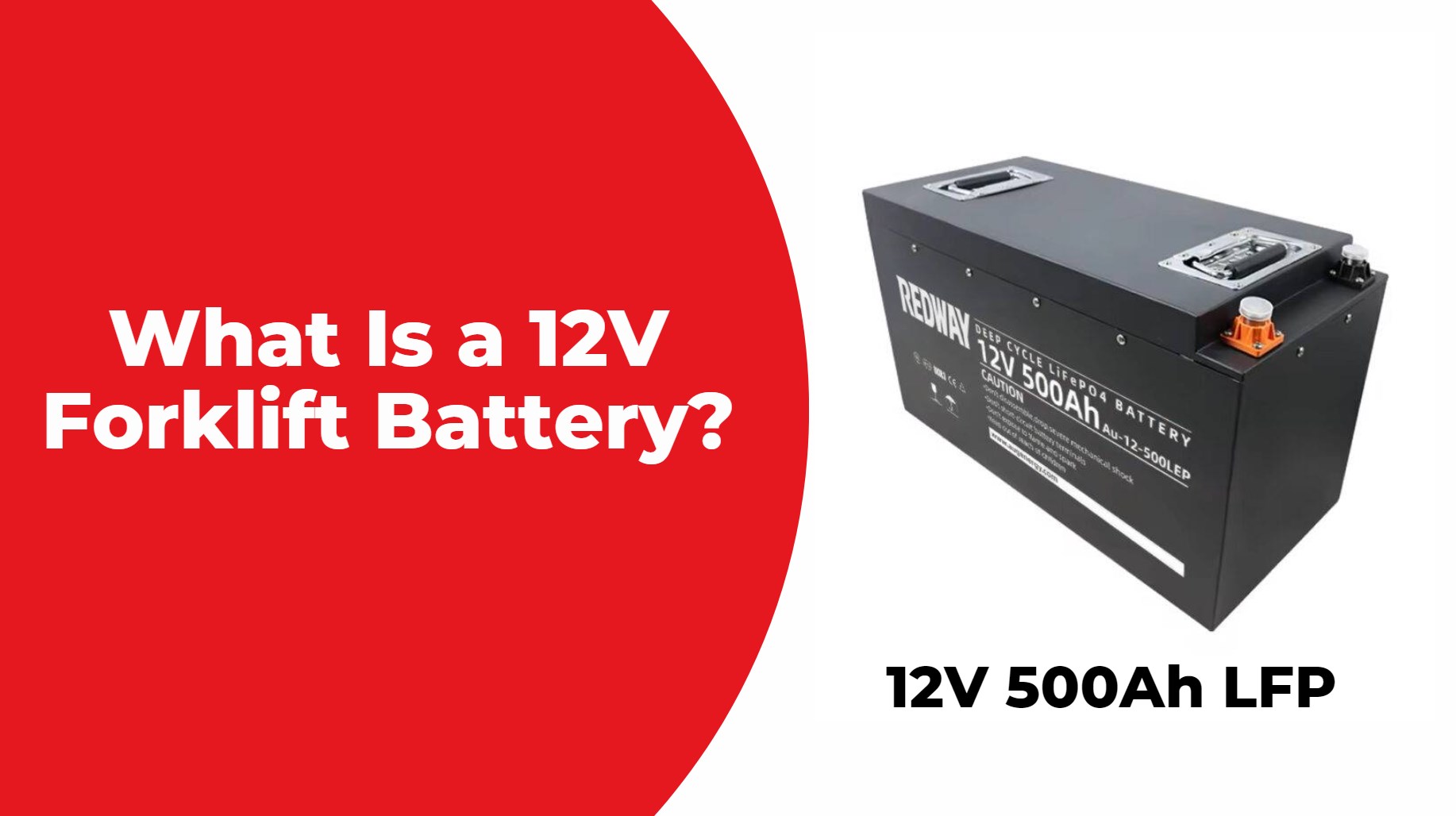A 12 volt forklift battery is a power source used in electric forklifts, providing reliable energy for various tasks. It typically comes in lead-acid or lithium-ion types, offering versatility and efficiency for lighter-duty applications, making it suitable for warehouses and distribution centers.
How Does a 12V Forklift Battery Work?
A 12V forklift battery works by converting chemical energy into electrical energy. In lead-acid batteries, a reaction occurs between lead plates and sulfuric acid. Lithium-ion batteries use a different process, allowing for faster charging and longer lifespans, making them efficient for powering forklifts.
What Are the Advantages of Using a 12V Forklift Battery?
The advantages of using a 12V forklift battery include cost-effectiveness, quick charging times, and compatibility with various forklift models. They provide reliable power for lighter tasks and reduce downtime due to faster recharging, enhancing overall productivity in material handling operations.
Wholesale lithium golf cart batteries with 10-year life? Check here.
The benefits include:
- Compact size, ideal for tight spaces.
- Extended runtime allows longer operational periods without recharging.
- Faster charging reduces downtime during shifts.
How to Maintain a 12V Forklift Battery?
To maintain a 12V forklift battery, keep it clean and free from corrosion. For lead-acid batteries, regularly check water levels and charge fully after use. Lithium-ion batteries require less maintenance but should be charged properly. Following manufacturer guidelines helps extend battery life.
Want OEM lithium forklift batteries at wholesale prices? Check here.
What Types of 12V Forklift Batteries Are Available?
The main types of 12V forklift batteries are lead-acid and lithium-ion. Lead-acid batteries are traditional and cost-effective but require regular maintenance. Lithium-ion batteries are more efficient, charge faster, and have longer lifespans, making them increasingly popular for electric forklifts.
The primary types include:
- Lead-Acid Batteries: Traditional option requiring more maintenance but generally less expensive.
- Lithium-Ion Batteries: Offer longer lifespans and faster charging times with less maintenance.
Know More:
What Are the Different Types of Forklift Batteries?
What Is a 36 Volt Forklift Battery?
What Is a 24V Forklift Battery?
What Is a 12V Forklift Battery?
How to Choose the Right 12V Forklift Battery for Your Needs?
When choosing a 12V forklift battery, consider factors like the type of work (lighter vs. heavier tasks), battery chemistry (lead-acid vs. lithium-ion), size compatibility with your forklift, and charging requirements. Assessing these factors ensures you select the best battery for your operational needs.
Consider factors such as:
- Voltage compatibility with your forklift model.
- Amp-hour ratings based on operational needs.
- Physical dimensions to ensure proper fit.
What Are Common Applications for 12V Forklift Batteries?
Common applications for 12V forklift batteries include light-duty tasks in warehouses, retail environments, and distribution centers. They are ideal for electric pallet jacks and smaller forklifts used in tight spaces where maneuverability is essential.
These batteries are widely used in:
- Warehousing
- Manufacturing
- Retail environments
They enhance productivity by allowing forklifts to operate efficiently over extended periods.
How Do 12V Lithium-Ion Batteries Compare to Lead-Acid Batteries?
12V lithium-ion batteries outperform lead-acid batteries in terms of efficiency, lifespan (up to five times longer), and maintenance needs (minimal). Lithium-ion options charge faster and provide consistent power output, making them ideal for busy operations needing quick turnaround times.
What Is the Lifespan of a 12V Forklift Battery?
The lifespan of a 12V forklift battery varies: lead-acid batteries typically last around 1,000 to 1,500 cycles (about three to five years), while lithium-ion batteries can last between 4,000 to 5,000 cycles (up to ten years). Proper maintenance significantly influences their longevity.
How Do Environmental Conditions Affect Battery Performance?
Environmental conditions like temperature can greatly affect battery performance. Extreme heat or cold can reduce efficiency and lifespan. Keeping batteries within recommended temperature ranges helps ensure optimal performance and longevity during operation.
What Safety Measures Should Be Taken When Handling Forklift Batteries?
When handling forklift batteries, wear protective gear like gloves and goggles. Ensure proper ventilation during charging to avoid gas buildup. Follow manufacturer guidelines for safe handling practices and be aware of spills or leaks to prevent accidents or injuries.
Expert Views
“Selecting the right forklift battery is crucial for operational efficiency,” states an expert from Redway. “Understanding the benefits and maintenance requirements can significantly impact productivity.”
Conclusion
In summary, a 12 volt forklift battery is an essential component for electric forklifts, providing reliable power for various industrial applications. Understanding its advantages, maintenance needs, and safety measures will help users maximize their investment in these critical power sources.
FAQ Section
- What is the average lifespan of a 12 volt forklift battery?
Lithium-ion batteries can last up to ten years while lead-acid batteries typically last around five years. - How often should I charge my forklift battery?
Charge regularly based on usage patterns; avoid deep discharges for optimal lifespan. - Can I use a lead-acid charger on a lithium-ion battery?
No, chargers must match the specific battery type due to differing charging requirements.






